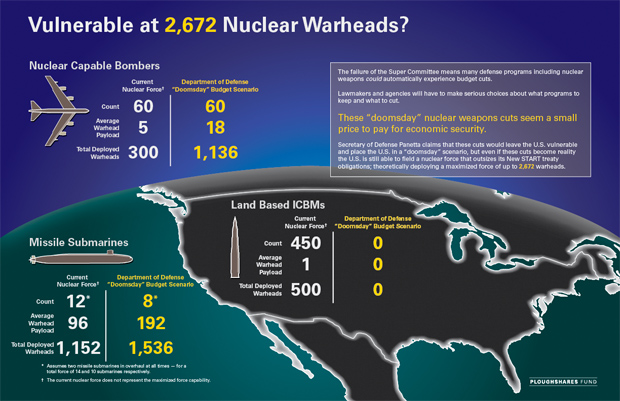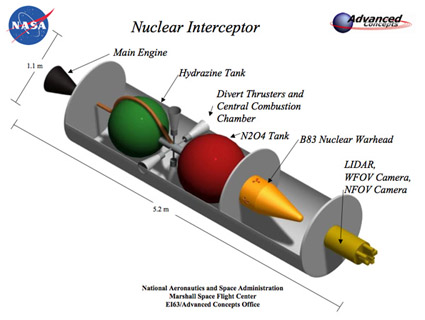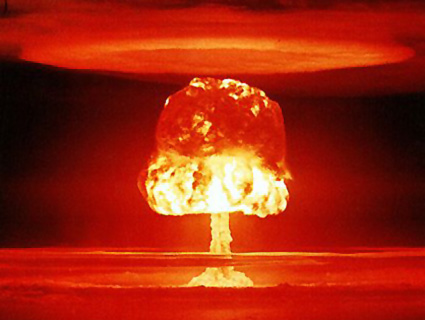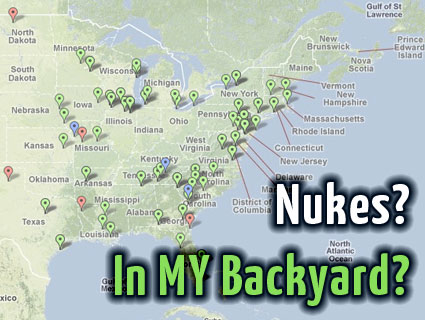If Congress doesn’t fix its budget mess, and the government faces automatic cuts, how badly would it really hit the military complex? Defense Secretary Leon Panetta has said budget sequestration could have “devastating effects” on the US’s ability to protect itself. But Jeffrey Lewis, a nonproliferation expert at the Monterey Institute of International Studies and the lead blogger at Arms Control Wonk, has crunched the numbers and come up with a decidedly different take—at least where America’s nuclear arsenal is concerned.
Even if Panetta’s doomsday budget scenario comes to fruition, and the nuclear weapons budget is slashed dramatically, the US would still field more nukes—2,672, to be exact—than it needs to maintain a credible deterrent, and far more than it’s (technically) allowed to have under the New START treaty, Lewis writes.
In fact, even if the government did away with all of its land-based nuclear missiles, the ICBMS, and cut its submarine force by one-third, it could actually increase its number of deployed missiles, simply by loading more on their remaining subs and bombers. “Don’t get me wrong, sequestration is a dumb way to reduce the nuclear force,” he states. “But it isn’t clear to me it is a particularly dangerous way to do it.”
Over at the anti-proliferation Ploughshares Fund, researcher Peter Fedewa has put all this wonkiness into the handy chart shown above (click to embiggen), so you can wrap your brain around the idea that automatic budget cuts could actually make the US nuclear force more robust. (Full disclosure: Ploughshares has provided grants to the Foundation for National Progress, Mother Jones‘ parent nonprofit organization.)
“It is striking that the U.S. could make significant cuts to the strategic weapons budget and still potentially field a nuclear force slightly over ten times the size of China’s,” Fedewa writes. “It does force one to ask, ‘why not scale back outdated weapons for some much needed economic security?'”
[UPDATE: Ploughshares edited its graphic to remove a dollar calculation on the budget sequestration amount, which was only a projection.]

















